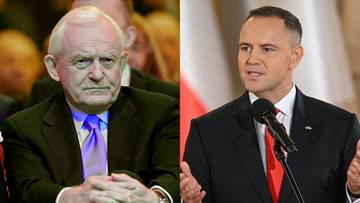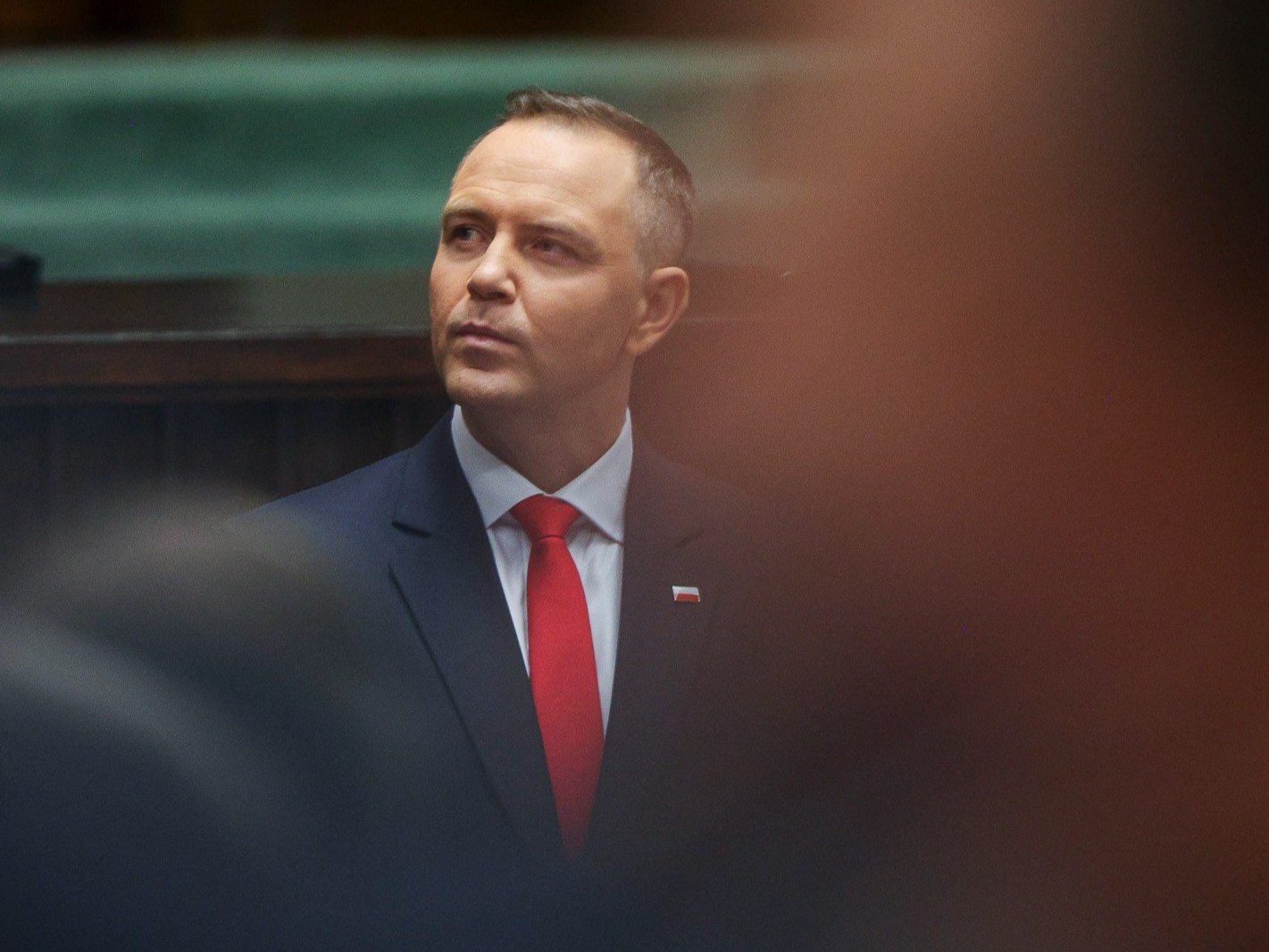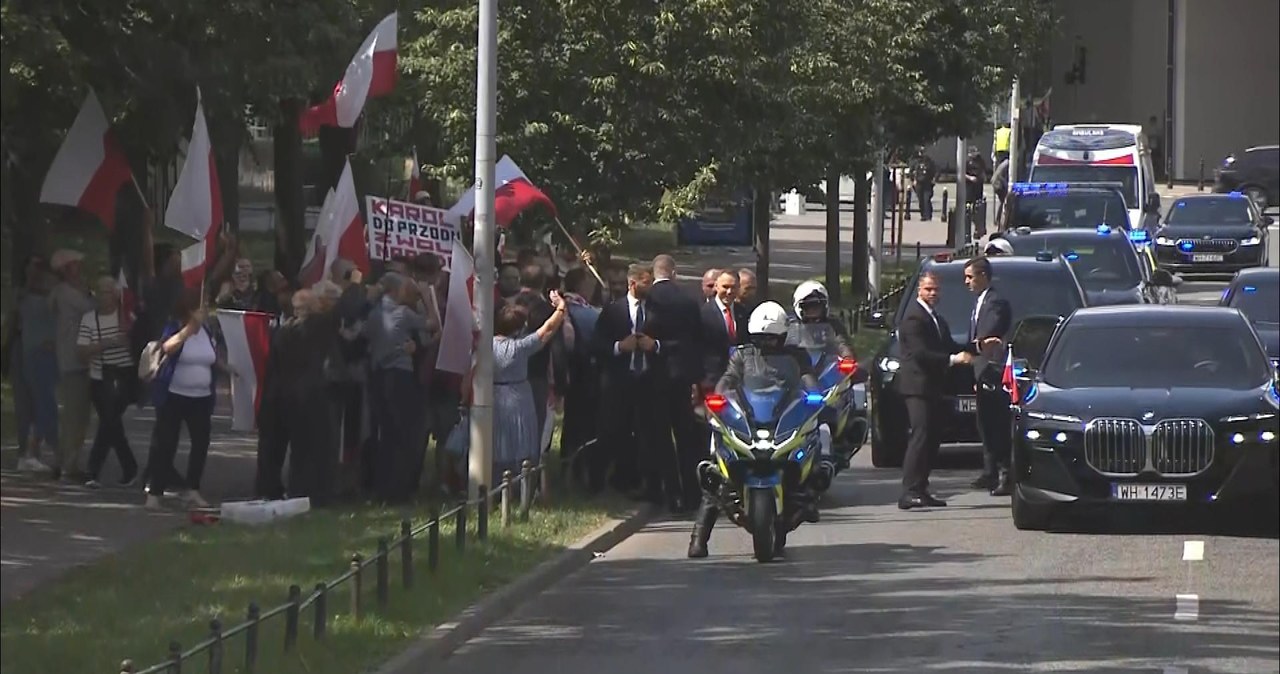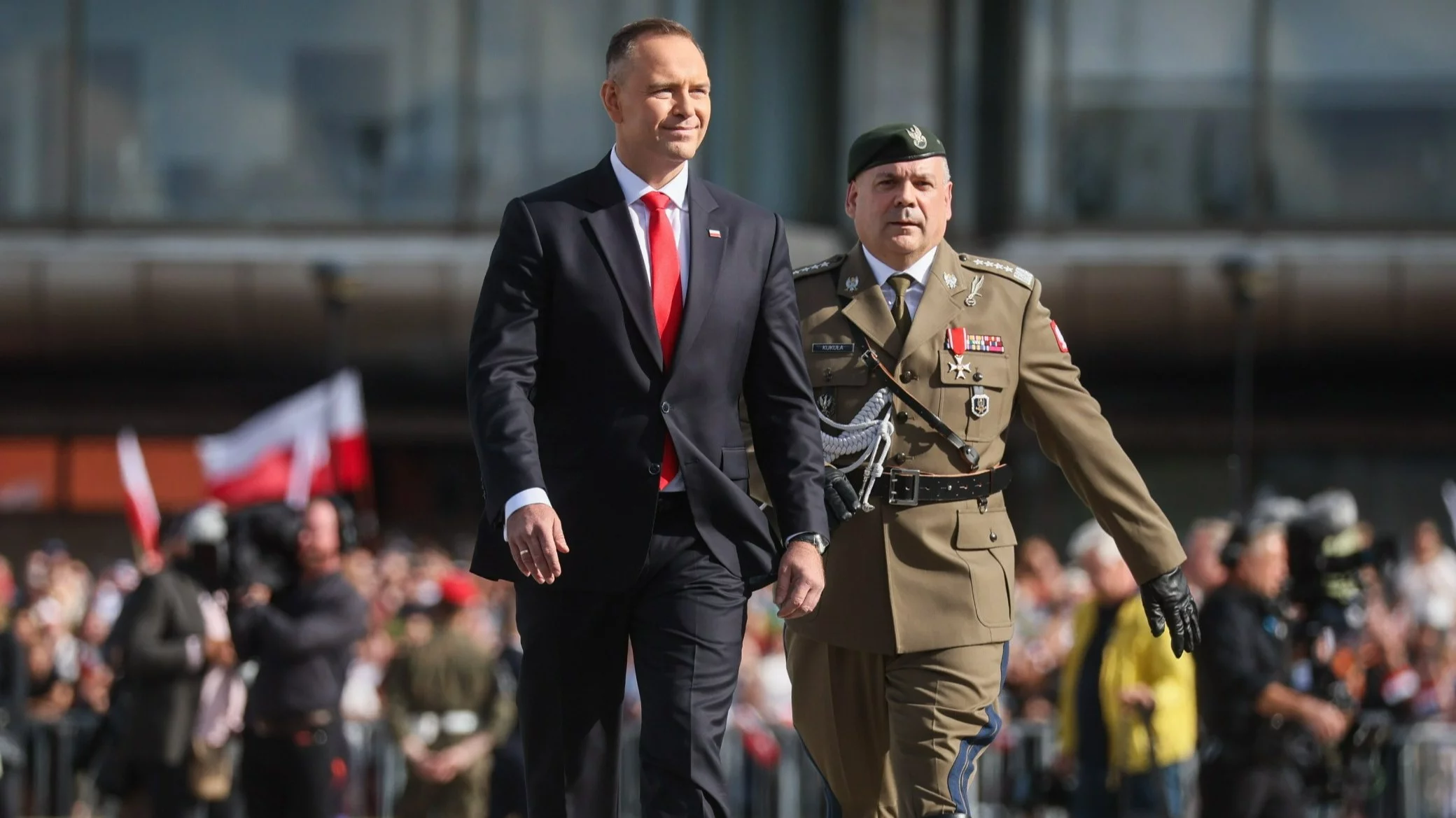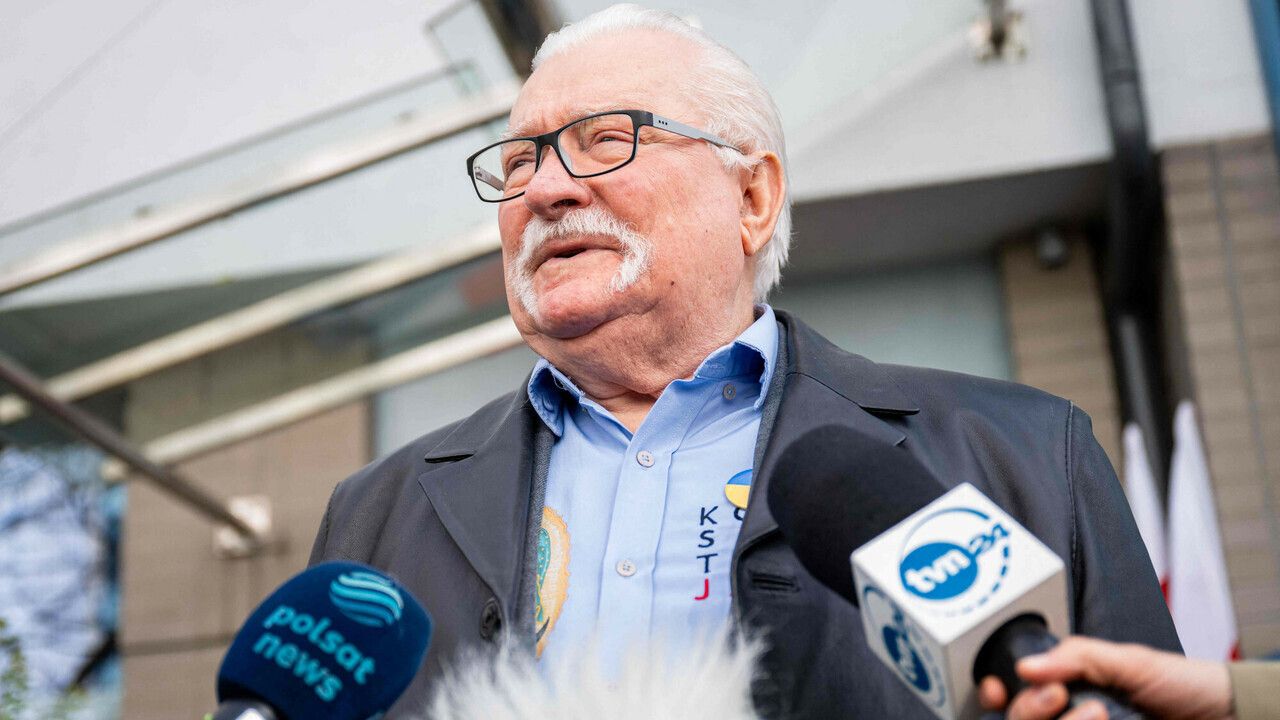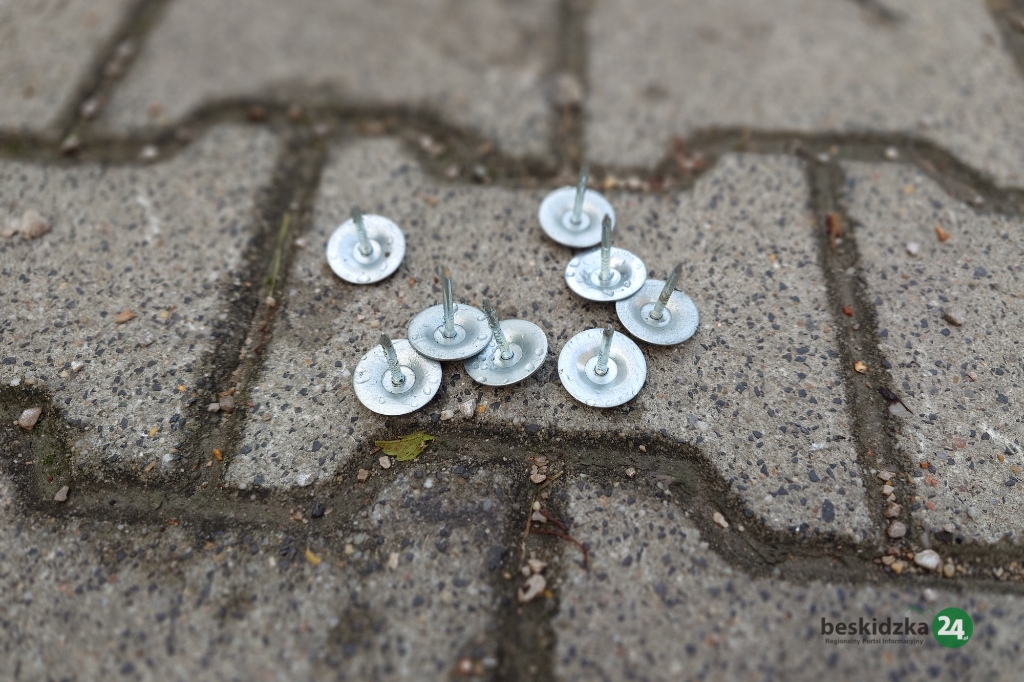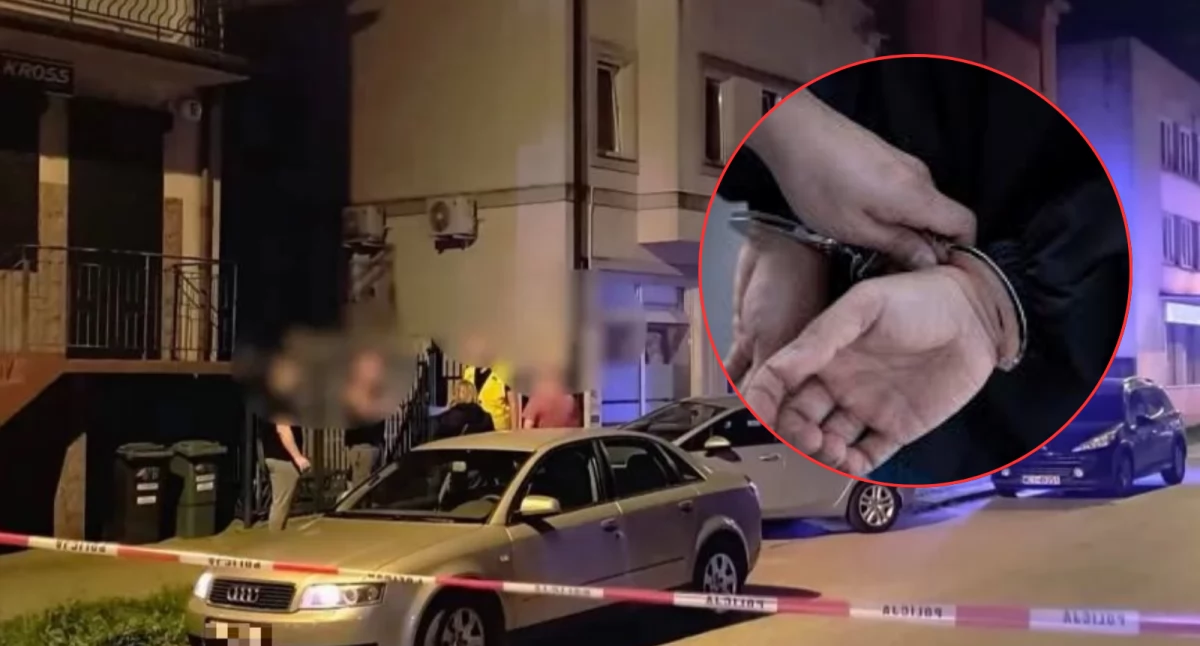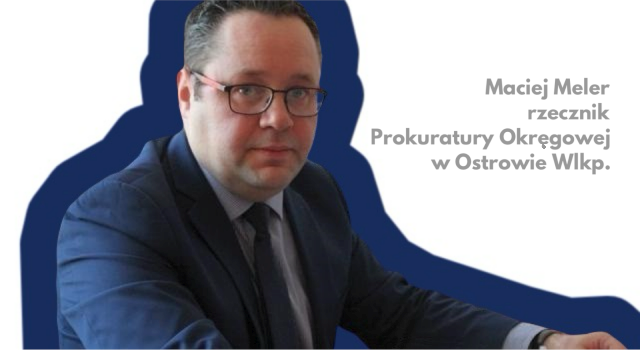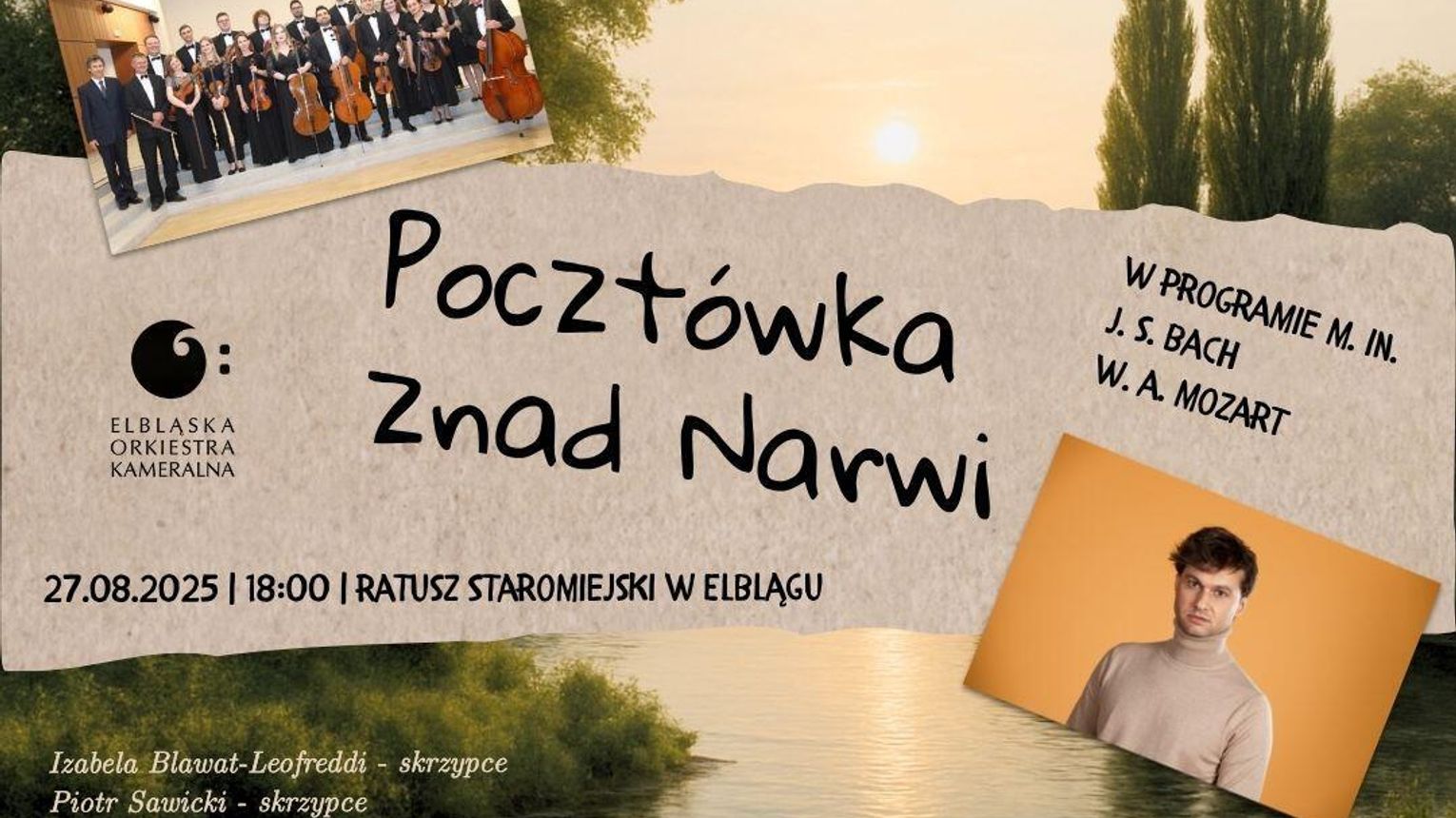Magdalena M. Aries: Human rights are stories about men, about human fates, about the evil that man can encounter, but besides about the good that another man can experience from us. Your job, your everyday life, is to work with people. With the individual stories behind each of them, and at the same time with all the baggage they carry with them – war, life-threatening, injustice, separation from their loved ones, torture, exclusion... De facto with all form of evil we can imagine, and from which people flee. Human rights are written on the faces of these people, on the Face of the Second. Just these faces, their presence in your life, in the context of migration and dilemmas today, I want to ask you.
Hanna Machinska: This commitment to participating in another people's stories has taken me out of my activity and the work of the Ombudsman's office. Over the years, I have met dozens of people, so many families, who have shaped my view of migration, rather different from what is officially presented in public messages, in the information and messages that come from government representatives. In my view and experience, first and foremost, the aid that we have shown to those most unfortunate people affected by wars and conflicts, women who have been raped, families in terrible situations. It didn't even take much knowledge, due to the fact that we saw people so terribly mutilated, people on the border, but besides those who were in safety centers. We have taken steps to improve their destiny to improve the procedure for applying for global protection. It seemed to me that what we were dealing with, and what is highly inhumane, was, for example, the suppression of 700 men in a centre in Wędrzyn, which in January 2022 was clearly stated to neglect to meet the basic guarantees against the inhuman and degrading treatment of people deprived of liberty or – another examples – the placing of seriously sick women on 1 level in a centre decently guarded without medical assistance, or yet the placement of children in guarded centres. From today's perspective, I would say that these cases were dramatic, but the way officers acted, although they did not meet all the standards, was much more appropriate than what we are dealing with today. I mean a one-dimensional image of migration, especially the situation at the Polish-Belarusian border, where migrants are clearly identified as people who storm the wall. I am not saying that specified cases are not present, but only that there is simply a deficiency of nonsubjective picture, the minute erstwhile the Prime Minister could tell the public about different situations, both of which are a safety threat, but besides of the dramatic ones, erstwhile we are dealing with a family, with 7 children, or with families from different states of oppression. due to the fact that erstwhile a female with children escapes from Afghanistan, where spiritual radicals have taken over again, we know she wants to save herself. Then it is our duty, our country's work to grant global protection. The thing is, I don't see that kind of message. What is more, through the various instruments that the current power has taken over after the Law and Justice – pushbacks, exports – to fresh tools, namely the European dimension, the exclusion of work for the unlawful usage of weapons or yet the suspension of the right to asylum, we are dangerously moving distant from human rights standards. And yes, we're moving distant from considering those individual human stories you're asking about.
Migration is not a fresh thing. Sigismund Bauman reminded that people, that “foreigners fleeing the savagery of war, from barbarism, from what puts their lives in danger of starvation, have always knocked on our doors.” We've been knocking on doors for years... Generations of my great-grandfathers knocked on the door of the West, just look at the scale of migration that happens before the large War, which meant searching for a better life. Another example is Polish migrants in Iran during planet War II, almost 120,000 people, and we are not just talking about soldiers. Whether the migration behind the iron curtain was yet – and then besides those who protected themselves from persecution, but besides those who wanted to "live in the West." We must reiterate that migration is not a fresh phenomenon, but besides that it changes and will change its character. fresh reasons have been added to the past, specified as the case of climate refugees, people fleeing places where they truly cannot live. We are happy to go on vacation to Tunisia, and just look at what happens at the borders there, or stand in the place where the boats come out to Lampadusa... And this is most likely where the study by Przemysław Sadura and Sławomir Sierakowski describes "selective liberalism" existing in Poland erstwhile we fight for women's rights, but we turn our eyes from migrants...
In fact, we have forgotten about large passages of our own history, those that for individuals – as for today's refugees – were difficult, and due to the openness of another countries, to respect the law, for many have become the beginning of our better life. Migration was and will be, the only question is how we talk about it. Unfortunately, in Poland there has been a process of building always stronger anti-immigrant propaganda, which from the highest levels was descending and inactive descending, reaching the full society. We remember the disgraceful words of the president of PiS. The power built a image of the horror that was to be caused by migrants, and among them a large number of refugees. We have repeatedly recalled the celebrated press conferences organised by representatives of the Pisan authorities, where all statements, starting with the President, by successive ministers or MPs, built distrust, a sense of danger, de facto They're slim to humans. There has been talk of an alleged escalation of violence. People began to fear, proceeding that terrorists were passing through the border, who posed a threat to Poland.
Meanwhile, by pushbacks, We frequently don't really know who tried to get to Poland. We know more about these dramatic cases, people who, despite their efforts to get global protection, were savagely expelled. I remember a household case that was thrown out 30 times at the authoritative border crossing. I went there, to Brest, inactive as a deputy spokesman, but for absolutely private purposes. I met the Chechen families there. It was any kind of horrendum erstwhile a parent with 5 children, including 2 disabled boys, was thrown out at a passageway in Terespol. This process of rejecting migrants has already been in progress, but has intensified over 8 years of PiS rule. What has happened, and what has already been an absolute nightmare, is, of course, the end of this power erstwhile anti-immigrant and anti-human propaganda have taken on incredibly violent dimensions, which we see effects to this day. I experienced this during a gathering with advanced school students in Gdańsk, who told me that borders must be absolutely protected, and migrants are a threat to us, Poles. But it's hard for migrants to go back to where they came from. And where the humanitarian element, where the legal dimension of humanity – I ask. They were students of good advanced schools, it seems they should be light, open, understanding. Meanwhile, they presented 1 view due to the fact that they were filled with this savage propaganda. This communicative is harmful on a multi-level basis, due to the fact that on the 1 hand it straight touches migrants, and on the another hand it makes people afraid and hear, for example, that there has been any crime and the guilty has turned out to be a migrant, it immediately creates an image presenting not a single man, who can actually be bad, but a full group, which is simply a threat to us in Poland and another EU countries.
I think we've forgotten how harmful these generalizations are. Do you remember those horrible jokes that advised German that if his car was lost, he should look for it in Poland? A case of a different caliber, but a mechanics similar, likewise stigmatizing and leading to the creation of injurious stereotypes. There are criminals and common bastards everywhere among the masses of decent people. And look, the government of the United Right was willing to brag about its spiritual connections, the state celebrations began with mass, strengthening the alliance of the throne with the altar. But erstwhile it comes to basic values... not necessarily. With the dignity of another human being, with the requirements of humanitarianism—of which they were so proud—they yet had small in common. I was raised by Kanta and Levinas, the inability to treat another man as a tool or a means to an end, to see the Second in his poorness and infirmity. Meanwhile, humans became the tools of war. And while hybrid warfare is simply a fact and we request to find an effective way to deal with it, it does not mean from the vending device that another man, this alien, must be the enemy. Today's government seems to forget this aspect. See besides how different our reactions to different forms of war...
You've touched the issue of war, and that's very important. It is adequate to mention the beginning of the war in Ukraine and how we were able to mobilize immediately during this period. What empathy, what support we showed for people fleeing war, saving their lives. On the second day of the war, I was on the border and at the station in Przemyśl and I looked at these fantastic Border defender officers. I admired their behavior. And I asked them why you can behave like this, and your colleagues in the Polish-Belarusian section behave savagely. There was no circumstantial answer. They only said, “We are ashamed.” We saw this immensity on the Polish-Ukrainian border and the despair of these people. What happened then? The society passed the test over. If it wasn't for us, different individuals, full families, groups of friends, the full strategy would collapse. The state was absent, and it would not be able to cope.
The state had no thought how to deal with it. There was no fast response, no coordination, no good ideas, and sometimes just thinking. I think that this helplessness of war is what should be feared. Even if we are perfectly able to cope with empathic or “warring” breaks, we request a state. That's what we agreed. And it was absent.
We've dealt with it in different ways. I remember a minute erstwhile there was terrible chaos at the western station in Warsaw and the president of Warsaw, Rafał Trzaskowski, called for the aid of Ada Porowska. He said, "Put it right, get any help." And of course she did it perfectly. It was a form of cooperation between local government and NGOs, while politicians of the ruling organization at the time were completely lost. It was a time that was terribly difficult, and at the same time it brought out the best in people. However, after months of expanding enthusiasm, the material becomes tired. It's natural. But the authorities besides contributed to this discouragement process. due to the fact that if you throw the thought that you should choice up 800 plus those Ukrainian families that don't work, it's a false phenomenon due to the fact that people like that are promils. They work and want to work, are liable for about 1.5% of Polish GDP,
delivering PLN 15 billion to our budget, and 800 plus that's just PLN 2 billion. Of course, it's very catchy, populist.. Meanwhile, those who work save the budget. For example, if they all left, what would the service look like? What would our entrepreneurship be like? What would we do with that? Unwarranted, hurtful and yet harmful passwords cannot be thrown into public space. Harmful to our entrepreneurship, but besides the relationships we could build.
Ideas of this kind are of course convenient for all populists and average haters. They besides lead to producing and priming a negative image of visitors. In the long term, stereotypes build walls, not bridges. And again, we return to the alien figure that you expect, but it doesn't give him anything. And that's bullshit, building any pyramid of possible suspicions. On the another hand, we are talking about migration on the another hand, much more seriously. We both remember the minute of announcing the Polish migration strategy, last October. It was after her performance that we discussed her at the Freedom Games. Donald Tusk then assured that the fresh procedures were aimed at preventing the threat of hybrid war and at the same timepromised to take care of the humanitarian dimension of the situation on the Polish border. The thing is, alternatively of humanitarianism, something absolutely other happened. Poland has just adopted the draconian right to suspend the right to asylum. During the successive stages of the legislative action, this law met with open criticism. She was devastated by the opinion of the legislature Legislative Office, and we have the negative opinion of UNHCR, the voices of opposition from NGOs. The bill is passed, signed by the President, immediately enters into force, any people respond enthusiastically... but the border isn't just war. We've got Kurds, we've got Jazids, people who are truly in danger in their homeland. We besides have those people who, consciously or unconsciously, are being utilized as a tool, as a weapon in a hybrid war. Without talking to them, without looking at documents, we do not know anything about their poorness or possible threat in many cases without being interviewed.
The Act, or, in fact, amendments to the Act on granting protection to foreigners in the territory of the Republic of Poland, providing for the suspension of the right to asylum to any extent, was already announced in the strategy mentioned by you. The strategy itself has already been completely criticised by us due to the fact that it is anti-European, absolutely anti-European. fewer have pointed out that it states that the judgments of European tribunals do not go hand in hand with migration policy.Does this mean that we will reject the rulings of the European Courts? Secondly, the strategy is actually anti-immigration due to the fact that it assumes that, for example, we are rejecting the Pact on Migration and Asylum. However, it consists of certain legal acts, including circumstantial regulations. The fact is, erstwhile we are in the Union, we must enforce EU law, if we refuse to implement the fundamental work of law, we are facing financial penalties.
Not so long ago, we have been in group protest in defence of democracy, we have been reminiscent of the implementation of the judgments of European tribunals, erstwhile it was, for example, about the regulation of law in Poland. We cannot afford double standards.Meanwhile, present we hear that we will not apply the regulations of the European Parliament and of the Council which fall within the fresh approach of the European Union contained in the Pact on Migration and Asylum. It should be stressed with full force that it is our work to implement the Pact. And the adoption of amendments to the law causing the suspension of the right to asylum goes absolutely beyond what the European Union has established.
And the problem is that we suspend the right to asylum without appropriate procedures. After all, very circumstantial procedures are foreseen in the EU's legal framework, which forms part of the Migration Pact. Meanwhile, human destiny will be decided by an officer, a border guard. The question is, how will he measure whether a female is, for example, in the second or 3rd months of pregnancy, how to check whether individual is in a state of wellness qualifying him to be defined by the "sensitive group" law, how will he verify the age of a teenager?
And then, how does he see if a man escapes the war, or is he a dangerous criminal? Is he fleeing due to the fact that he is persecuted due to his religion, or is he threatened by torture or death? Or is he in despair and looking for a better life? I look at my students sometimes. Among them are Ukrainians, Belarusians, Georgians, Azerbaijani, but besides young people from Afghanistan, Congo, Iran, Syria and China. There's a communicative behind each of them that they wanted to tell me. And it's awful to think that if they crossed the border in a different way, they'd most likely stay in the woods with those stories. What competence does the defender have present to justice whether a man is in danger or not?
There's usually none.
Another thing that scares me is the very arbitraryness of specified a procedure in which there is possible corruption.
Absolutely, due to the fact that delight note that there is simply a provision in these amendments to the Act that says that if a exile is simply a individual facing circumstances which, in the opinion of the Border defender Authority, clearly show that it is at hazard of being seriously harmed in the country from which it comes, then he can apply for global protection. respective susceptible groups are mentioned, specified as unaccompanied minors, pregnant women etc. If we find a good empathic officer, we're lucky... The problem is how this law was designed, allowing the anticipation of specified arbitrary decisions. specified a deficiency of clear procedures can indeed be corrupt and at the same time straight endanger the lives and wellness of these people. due to the fact that we can't number on anyone in Belarus to treat them humanely. This is not their “first safe country”. It is besides worth adding that the treatment of migrants by
Polish border guards leave much to be desired. He wrote about this in his 2022 study by Felipe González Morales, UN peculiar Rapporteur on the Rights of Migrants. Among another things, he pointed out the usage of force by Polish border officers. There are many certificates, photos etc. Meanwhile, force in all form is unacceptable, as is the usage of force against migrants. We say "immigrants", but those people who enter Poland are frequently refugees, people who have a coded belief that they are fleeing danger. There is no formal basis for checking whether you are a refugee, so whether we are talking about people who are out of their country of origin due to fear of persecution, due to conflict or, for example, force that requires global protection. This bill has lost value. Political communication has been given priority, disregarding fundamental principles of the regulation of law and respect for human rights The consequence of the state's action should be the creation and enforcement of the law in full respect of the Polish Constitution and global law.
In the meantime... someway "we forgot" Article 56 of our own Constitution, likewise Articles 18 and 19 of the Geneva Convention on the position of Refugees, likewise to the European Charter of Fundamental Rights and the European Declaration of Human Rights... The Convention explicitly refers to "a legitimate concern about persecution due to race, religion, nationality, belonging to a peculiar social group or due to political convictions" and "inadmissibility of discrimination". It speaks of people who have the right to flee, and whose civilized planet has pledged to help. Of course, the Convention dates from 1951 and was created in postwar conditions. But we inactive declare attachment to those values, and what is more, it is simply a surviving law, as if enriched by changes in the world. due to the fact that people keep knocking on our door...
Yes, I asked Senators on platform X about breaking the law. any of them are lecturers at Polish universities. Will they be able to face students honestly and without hesitation say that this asylum suspension bill does not violate any standards or global law? I asked that question on the X platform, but I didn't get the answer. I wanted to ask you, how could you? How can you realize what Minister Duszczyk said that global law is outdated, that global law must be changed?
Firstly, both the Geneva Convention and the European Convention on Human Rights adopted at the same time are alleged instruments which are referred to as surviving instruments, means live instruments that are interpreted in the light of modern challenges. The courts adjust interpretations to modern realities. In the 1950s, erstwhile the European Convention was adopted, it did not contain a provision on the threat of environmental pollution, and present we have more than 400 judgments of the European Court. There was no provision on climate protection, and present we have the first crucial judgement on climate change. This law is alive, and on its basis the tribunals issue judgments concerning the burning problems of the planet today. It is so hard to agree that conventions are obsolete.
Soon, in May, Malta will be chaired by the Committee of Ministers of the Council of Europe. We are proceeding announcements about the request to work on the improvement of the European human rights system. This should be read: the European Convention on Human Rights. There are voices on the readiness to join a possible debate on improvement among another countries. Let's wait for Malta's authoritative position. Will the announcement of politicians that improvement of global instruments is needed be a fact? It is worth recalling the Declaration of Reykjavik, which culminates in the 4th Council of Europe Summit in May 2023, which highlights the key importance of the Council of Europe Conventional strategy for the Protection of Human Rights.
Today, the Polish government in its message seems to forget that speaking about migrations, both the Council of Europe and the European Union mention to human rights and humanitarianism. That's what Polish politicians don't talk about. However, there is no uncertainty that the "our" suspension of the right to asylum, which is "temporary" and introduced by the Council of Ministers by regulation violates the Constitution, the Geneva Convention, the Charter of Fundamental Rights, the European Convention on Human Rights, but besides the Regulation of the European Parliament and of the Council 2024/1359, which forms part of the Pact on Migration and Asylum, (the Regulation will enter into force from 1 July 2026). However, the infringement of the existing Directive 2013/32, which does not supply for this form of suspension of the right to asylum, cannot be overlooked. All global law experts and NGOs have submitted the proposed changes to the criticisms, and the Senate's Legislative Office has considered that the suspension of the right to asylum as a form of solution to the migration crisis raises constitutional concerns and violates global obligations. The Commissioner for Human Rights of the Council of Europe besides pointed to the serious consequences of the adoption of amendments to the Act that violate the European Convention on Human Rights. If the bill is contested, the court will, of course, be able to measure both the law and the regulation adopted on the basis of it. It is worth noting one more time that around the law appeared mass criticism expressed by experts of NGOs. The problem is the law. We have repeatedly pointed out the illegality of the pushbacks used, or exports, we have said that the wall on the border does not mean the border of the territory of Poland, due to the fact that there is simply a belt behind the wall, which is besides part of the territory of our country. Many administrative court rulings besides pointed to the illegality of pushbacks and violations of the rule non repoulement. Unfortunately, I see that there is dramatic radicalism in this regard. The law no longer has any meaning. This is deep, I would say, a dispute with another government. We want to support him on a democratic path, in rebuilding the regulation of law. However, we do not agree to drastic violations of the law on migration issues and so bad treatment of refugees. We do not question the need, even the request to guarantee safety, but we must do so in the right way. safety doesn't regulation out humanity.
The safety problem is deeper, erstwhile dealing with war, I know what her hybrid face looks like. I think we inactive deficiency this cognition and understanding. We deficiency education on this subject. From my point of view, the Shield East task is simply a large idea. Only that in the assumption, in addition to the deterrence/defence force of the alliance, it has a 3rd pillar, namely social resilience. And this is where the reality gnaws at me, due to the fact that the communicative of all migrant being a possible threat to this resilience is not building. We request facts, information, knowledge, and not fear. Therefore, the question is simply a small bit about the possible balance between the safety that we request to ensure, and the humanitarianism, the humanity of all man, the treatment of the another as a goal alternatively than a tool, or our rights and our ethics, of which we are so proud.
I think we realize differently, at least in this passage, the safety issue. For me, the introduction of these regulations means danger.We feel this message that we are throwing people out, but we do not know who we are throwing outside our borders, it will be precisely in the event of the suspension of the right to asylum. erstwhile there is no procedure erstwhile these people are simply thrown out, and it cannot be excluded that among those who want to get through, there may be people who gotta meet certain hostile goals, right? A strict procedure and an assessment of each person's situation, and so a thorough verification, would yet strengthen our safety. We'd know who was who. A regulation introducing a suspension of the right to asylum takes this distant from us.
It besides gives us small chance to change the paradigm. Again, on the next level, not only scares, but besides divides society. And this division, from an ethical point of view, even deeper than many erstwhile purely ideological disputes. Given the pace of the various changes in the world, from these climates to the change of the globalisation script to the demographic gap known from our yard, 1 cannot afford another “chapter” of antagonizing narrative.
We request to change the attitude of Poles. Unfortunately, it's easy to destroy, to rebuild. It will be a very difficult, long-term process, due to the fact that NGOs and activists simply can't do it themselves, especially since they have a state apparatus against themselves. Look at the 5 Process – which impressed me with its attitude – where the indictment reminds me of the 1960s. The Commissioner for Human Rights in his last speech on the Polish case cited this substance before the European Court. There's more like this. Worse still, a state apparatus is involved, which should absolutely not happen. I'm referring to the substance of a scientist who shouldn't sit on the defendant's bench, who should be able to proceed providing assistance, supporting migrants. The question to prosecutors conducting akin cases is: How can you let specified a situation? How can you destruct people who de facto aid you? We'd have more deaths on the border if it weren't for the aid you're giving those people you treat unworthyly, almost like terrorists.
I must say that the problem of uncovering a way to solve the humanitarian crisis on the Polish-Belarusian border truly requires quite a few work. Without the support of NGOs, the activist planet will not solve many problems. It would be good if the large work of activists were decently appreciated. Meanwhile, there are many examples of harassment, judicial proceedings against people profoundly active in providing assistance. So we're losing large social capital. erstwhile the United Right came to change after 8 years, we imagined that Poland would be the leader in the European Union in matters concerning respect for human rights. Unfortunately, we have made a dramatic return on migration and asylum issues.

Dr Hanna Machinska – is simply a lawyer and social activist withan asset in implementing European legal standards to Polish law, including in the field of protection of human rights and anti-discrimination law. She has always been active in combating discrimination, xenophobia and intolerance. Author of many publications on the protection of human rights, including “Axiology in the EU and the European Convention on Human Rights”, “Protection of Fundamental Rights in the European Union”, “Idea of Europe” (ed.), “Poland and the Council of Europe”, “Disabled on the labour market”. He works at the University of Warsaw as a docent.
From 1991 to 2002 she worked at the European Centre of the University of Warsaw, and from 2002 to 2010 she served as aDirector of the Council of Europe Information Office and from 2011 to 3 March 2017 she was manager of the Council of Europe Office. During Poland's accession to the European Union (2002-2004) she worked as an expert at the Office of the Committee for European Integration (UKIE). She was besides a associate of the European Education Council at the Minister of Education (2003), an expert at the Advisory Committee on European Law at the Minister of Justice (2008-2010), a associate of the Advisory Committee on Legal Affairs at the Minister of abroad Affairs (2011-2016).In 2017-2022 she was a Deputy Ombudsman. In 2023 she became an expertin the legislature of Poland.
From 1991 to 2017, she organised training of judges and prosecutors in the application of the European Convention on Human Rights, and from 2000 to 2006 Polish-Dutch postgraduate studies for public administration in the field of European law. From 1992 to 2010was the editor-in-chief of the Bulletin of the Council of Europe. As of 26 September 2017until 31 December 2022. Deputy Ombudsman.
She was decorated, among others, by the Ombudsman, the Minister of abroad Affairs, the Minister of Education, the president of the ultimate Bar Council, the Secretary-General of the Council of Europe and the president of Austria. She received the peculiar award Press Club Polska, the prize im. Bishop Tadeusz Pieronka In Veritate, the Teresa Toranska Newsweek Prize and the Henry Uncle Foundation Award.
In 2022 she received the title Doctor honoris causa University of Zurich Law Department. In June 2023 she became the Man of the Year of the Electoral Newspaper. In December 2023 she received a prize infieldProtection of human rightsand the regulation of law, granted by the Ministry of abroad Affairs of Germany and the Ministry of AffairsEuropeanand ForeignFrance, and in 2024 the prizeErasmus and Anna Jerzmanowski Foundation. She is simply a associate of the Council of the Helsinki Foundation and the Batory Foundation andLouisi and Henry Uncles Citizens' Fund.

